
Household Energy Storage Inverter (Wall-Mounted)
Household Energy Storage Inverter (Wall-Mounted)
Featuring simulated sine wave, our inverter boasts a 50A PWM solar charge controller, MFD for ease of use, 20A utility charging, 3-step charging algorithm, comprehensive protection against overloads, short-circuits, battery polarity reversal, deep discharge, & auto restart upon AC/solar recovery.
Household Energy Storage Off-Grid Inverter
|
Product Name |
Household Energy Storage Inverter (Wall-Mounted) |
Household Energy Storage Inverter (Wall-Mounted) |
||
|
Parameter Item |
Specification Description |
Specification Description |
||
|
Product Number |
HJ-HIO4833EW HJ-HIO4853EW |
HJ-HIO4883EW HJ-HIO4814EW |
HJ-HIO4833AW HJ-HIO4853AW |
HJ-HIO4883AW HJ-HIO4814AW |
|
Inverter Type |
Off-grid |
inverter |
Off-grid |
inverter |
|
Inverter Output Power |
3000W 5000W |
8000W 10000W |
3000W 5000W |
8000W 10000W |
|
AC Input Voltage |
(220Vac~240Vac) ±5% |
(220Vac~240Vac) ±5% |
(110Vac~120Vac) ±5% |
(110Vac~120Vac) ±5% |
|
Battery Voltage |
48Vdc |
48Vdc |
48Vdc |
48Vdc |
|
Photovoltaic input voltage |
145Vdc/60~130Vdc |
145Vdc/60~130Vdc |
||
|
Photovoltaic Input Power |
3000W 5000W |
8000W 10000W |
3000W 5000W |
8000W 10000W |
|
Communication Method |
RS485/CAN/WIFI |
RS485/CAN/WIFI |
RS485/CAN/WIFI |
RS485/CAN/WIFI |
|
Display Screen |
LCD/LED |
LCD/LED |
LCD/LED |
LCD/LED |
|
Degree of Protection |
IP20 |
IP20 |
IP20 |
IP20 |
|
Product certification |
CE/IEC/EN62109-1/-2 |
|||
System Diagram
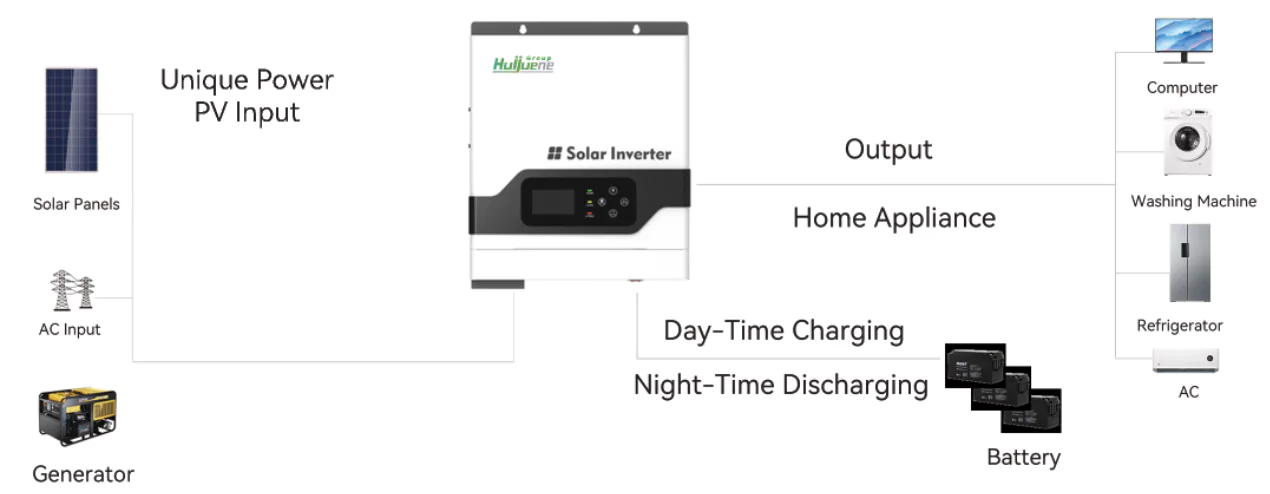
Household Energy Storage Inverter (Wall-Mounted) FAQ 6
Q: What are the benefits of a wall-mounted household energy storage inverter?
A: Wall-mounted household energy storage inverters offer several key benefits. Firstly, they are space-efficient, as they can be mounted directly on a wall, freeing up floor space in your home. This is particularly useful in smaller homes or apartments where space is limited. Secondly, wall-mounted inverters often feature sleek and modern designs that blend seamlessly into your home's interior, providing a visually appealing solution for energy storage. Thirdly, these inverters are designed for easy installation and maintenance, often with intuitive user interfaces that simplify setup and monitoring. Additionally, they can help optimize your home's energy usage by managing the flow of power between your solar panels, battery storage, and the grid, potentially reducing your electricity bills and increasing your energy independence.
Q: How does a wall-mounted energy storage inverter work with solar panels?
A: A wall-mounted energy storage inverter works in conjunction with solar panels to convert the DC (direct current) electricity generated by the panels into AC (alternating current) electricity that can be used to power your home's appliances. During daylight hours, the inverter sends the converted AC power to your home's electrical system, while any excess energy is stored in the attached battery system for later use. When the sun isn't shining or the battery is low, the inverter can draw power from the grid or the battery to ensure continuous power supply to your home.
Q: Can I use my wall-mounted energy storage inverter without solar panels?
A: Yes, you can use a wall-mounted energy storage inverter without solar panels, but its primary function and benefits are optimized when paired with a solar system. Without solar panels, the inverter would primarily manage power flow between your home's electrical system and the grid or a stand-alone battery system. However, this setup can still provide benefits such as energy backup during power outages and potentially reducing your reliance on the grid by storing energy from the grid during off-peak hours for later use.
Q: How do I maintain my wall-mounted energy storage inverter?
A: Maintaining your wall-mounted energy storage inverter involves a few key steps. Firstly, ensure that the inverter is installed in a well-ventilated area to prevent overheating. Secondly, regularly inspect the inverter and its connections for any signs of damage, corrosion, or loose connections, and address them promptly. Thirdly, follow the manufacturer's instructions for cleaning and dust removal to maintain optimal performance. Additionally, keep the inverter's user interface and monitoring system up-to-date with any available firmware updates to ensure compatibility with your solar system and battery storage.
Q: What should I consider when choosing a wall-mounted energy storage inverter?
A: When choosing a wall-mounted energy storage inverter, consider factors such as compatibility with your existing solar panels and battery storage, power output requirements, efficiency ratings, and any additional features like built-in monitoring systems or grid-tie capabilities. Additionally, consider the inverter's size and weight to ensure it can be safely and securely mounted on your wall. Finally, research the manufacturer's reputation for reliability, customer support, and warranty coverage to make an informed decision.
Since we maintain control over our products, our customers can be assured of nothing but the best quality at all times.


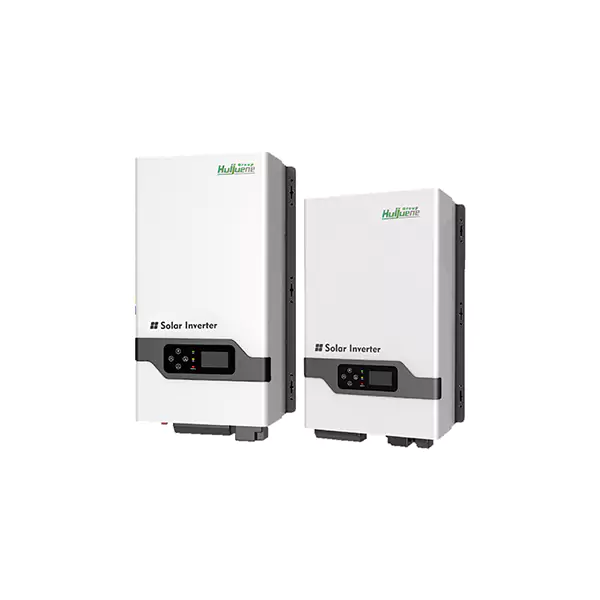
 Chat Online
Chat Online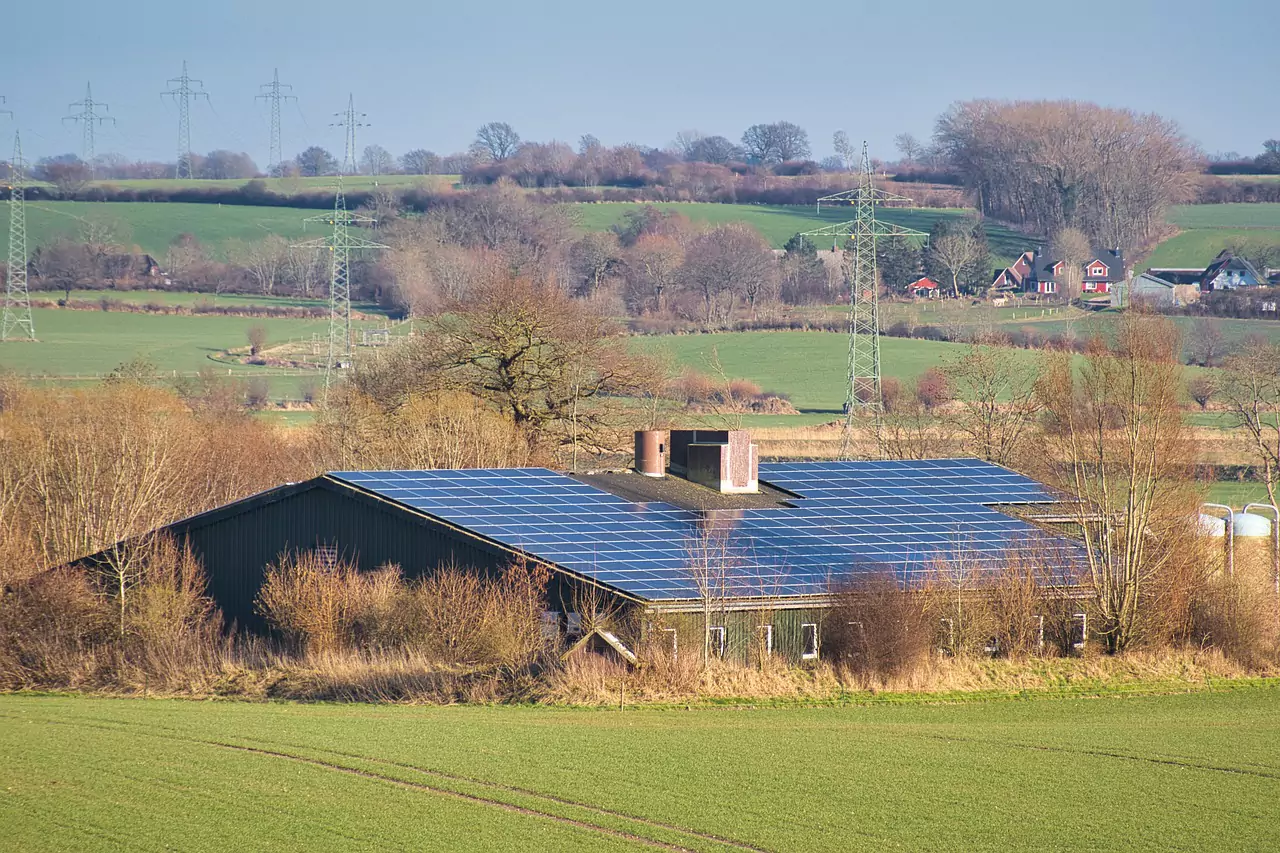
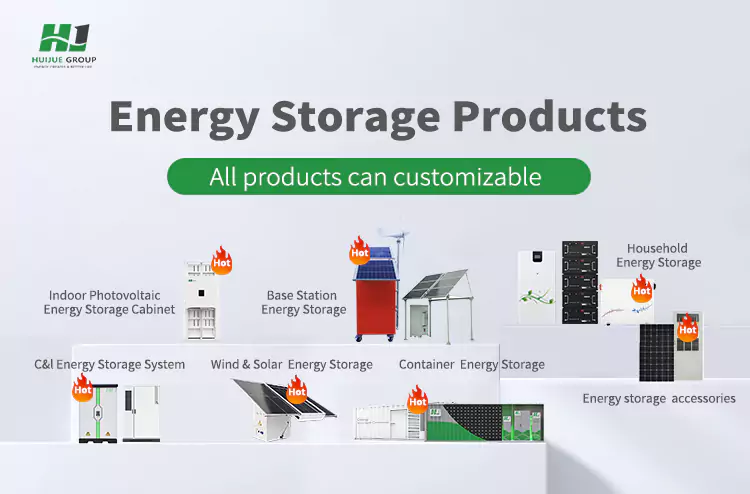
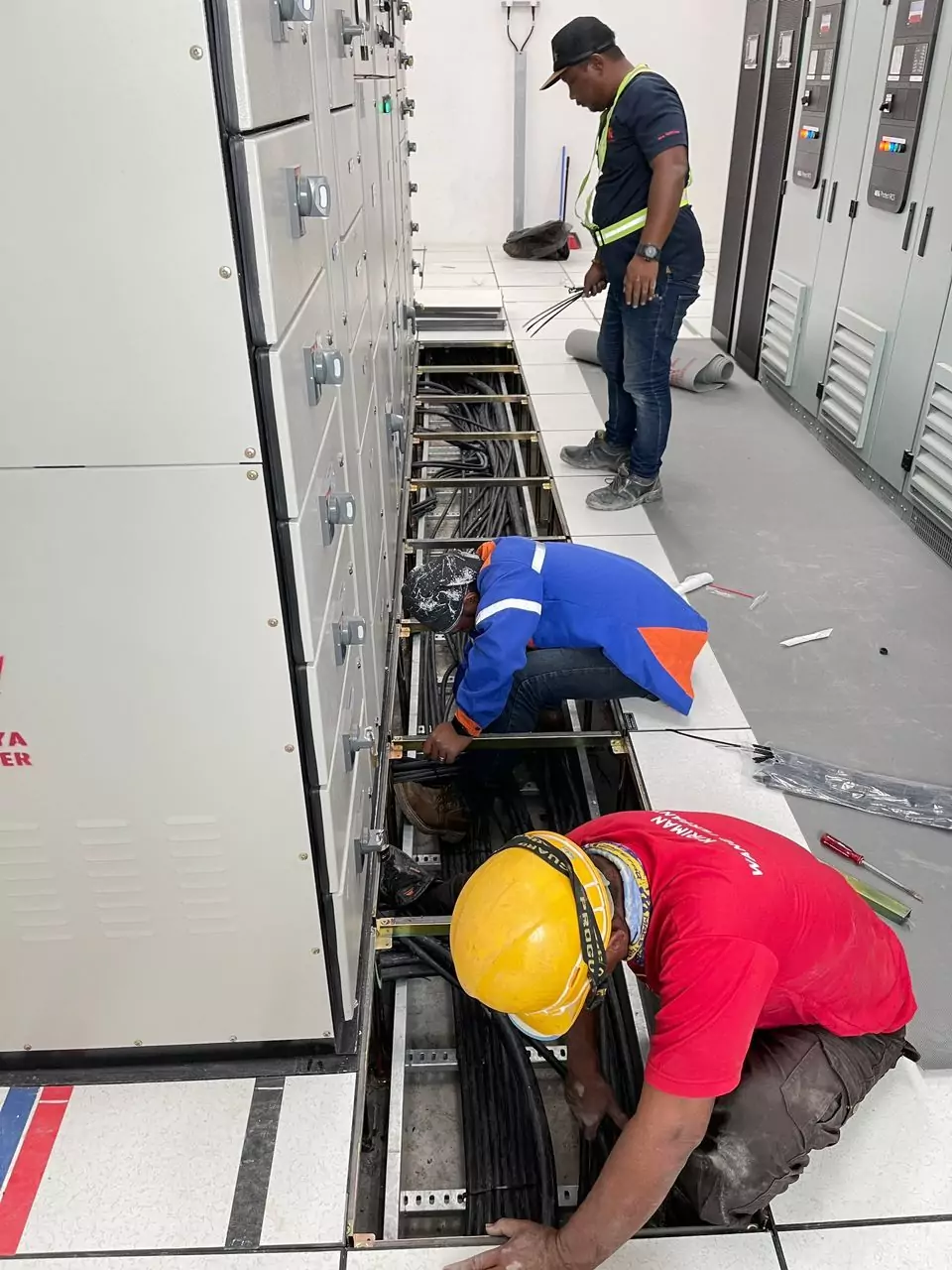
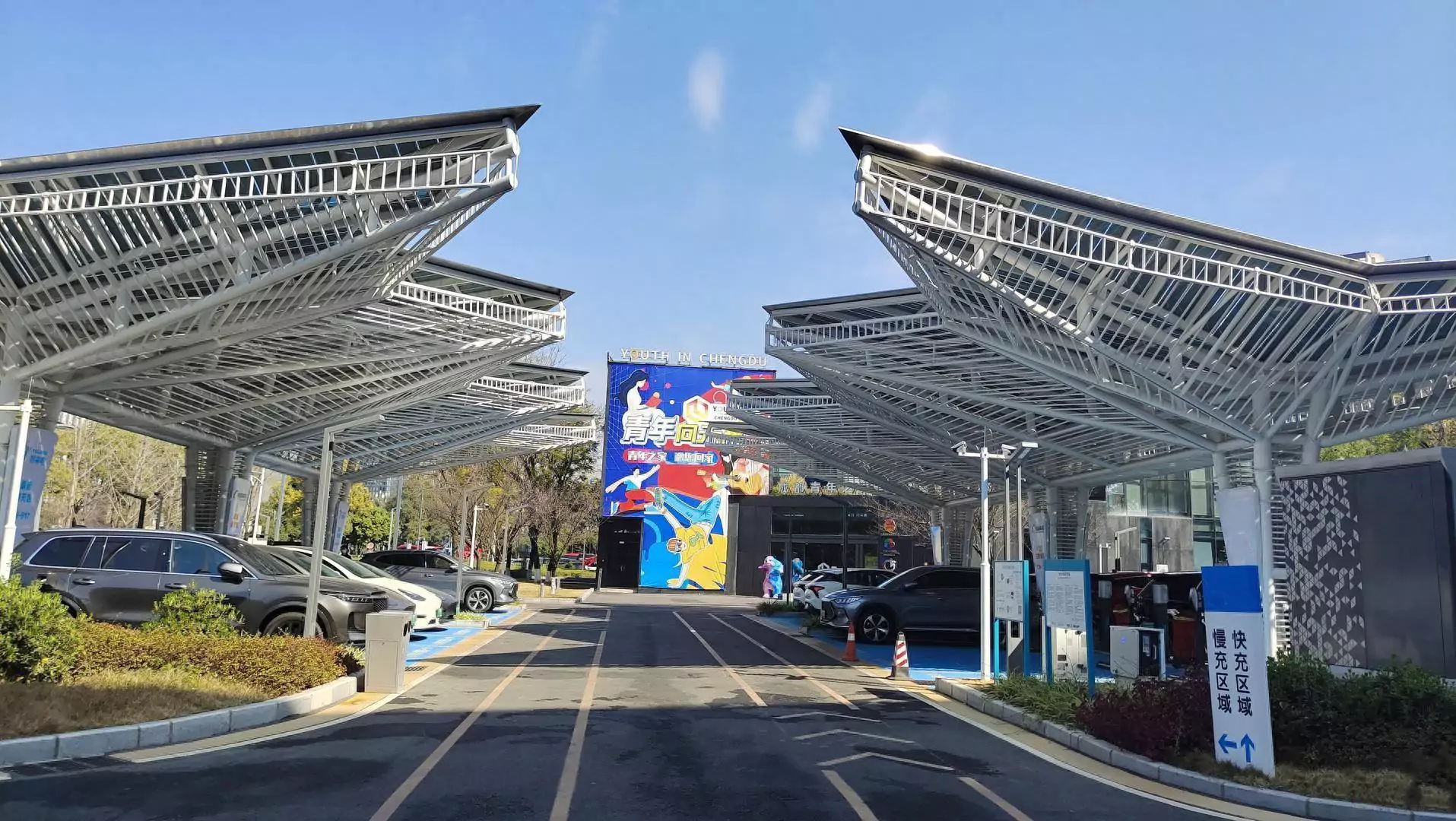
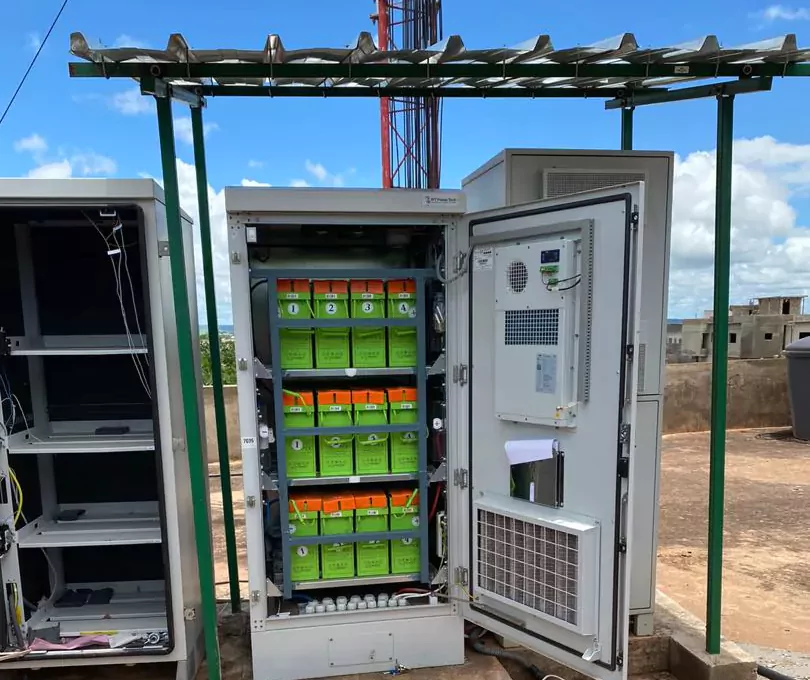
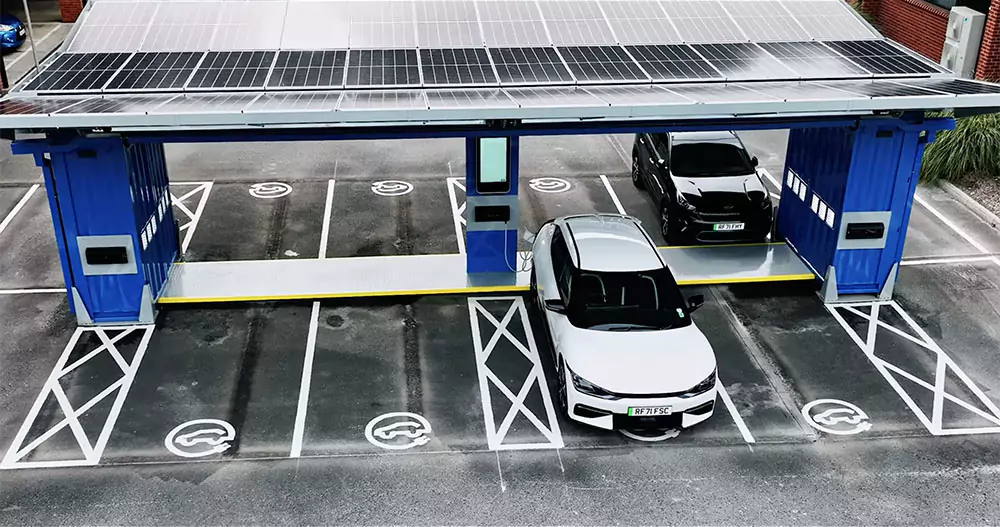
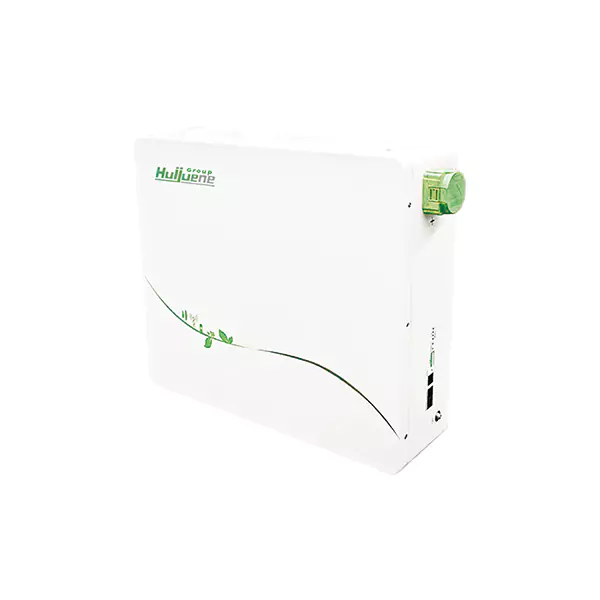
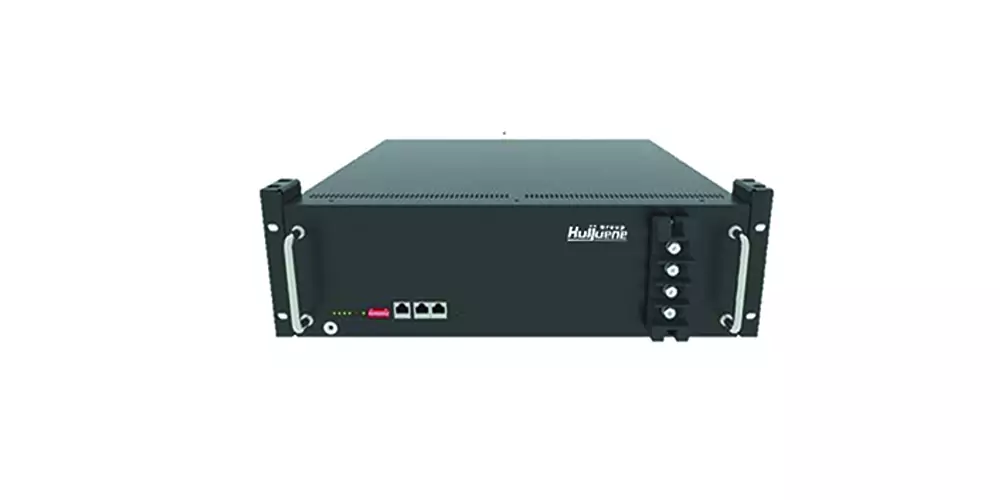
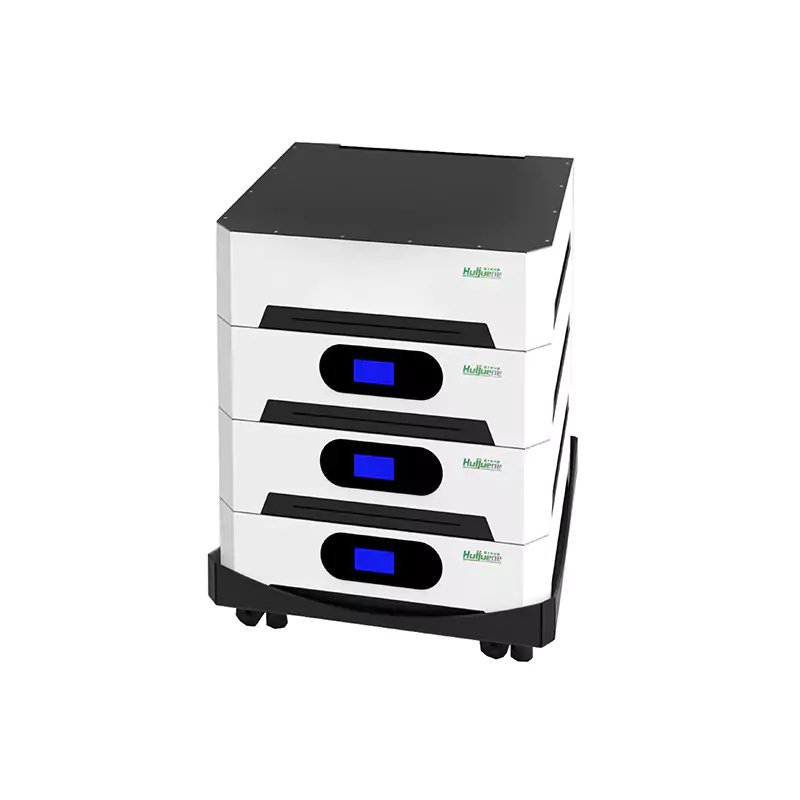
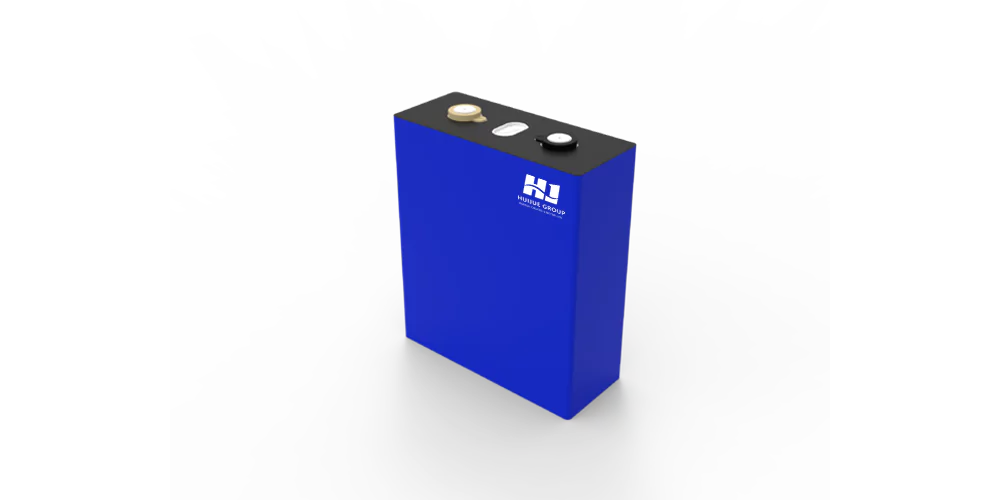
 Inquiry
Inquiry Online Chat
Online Chat